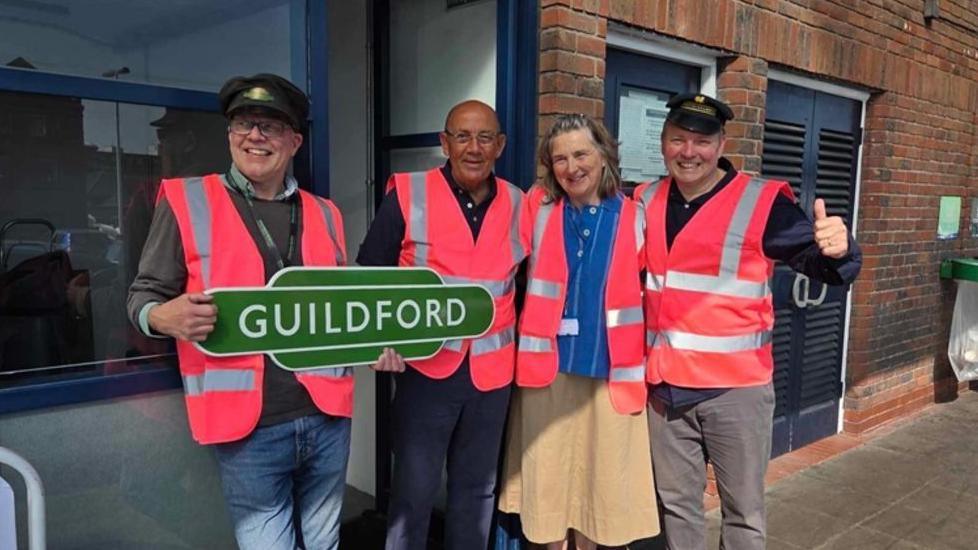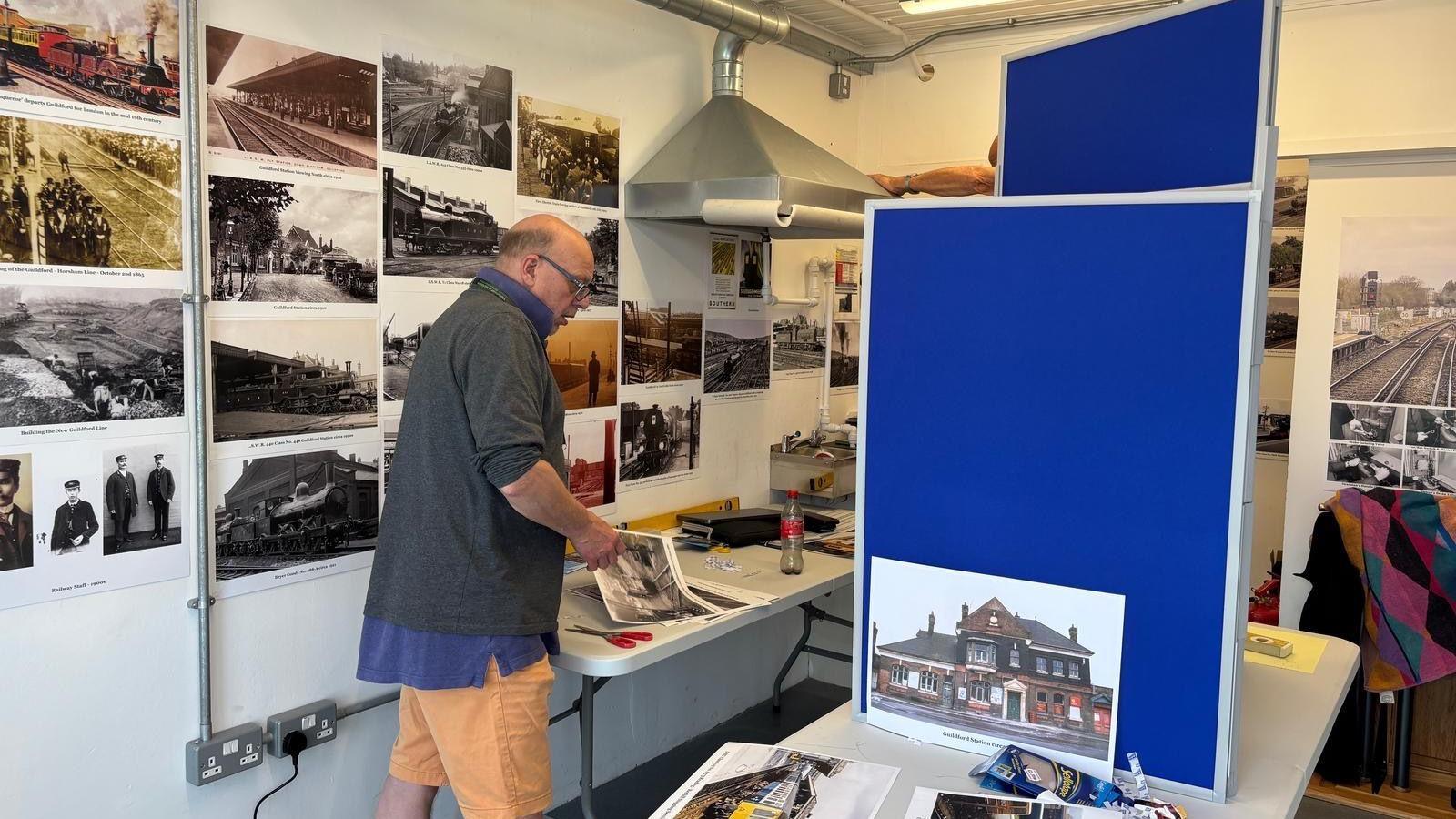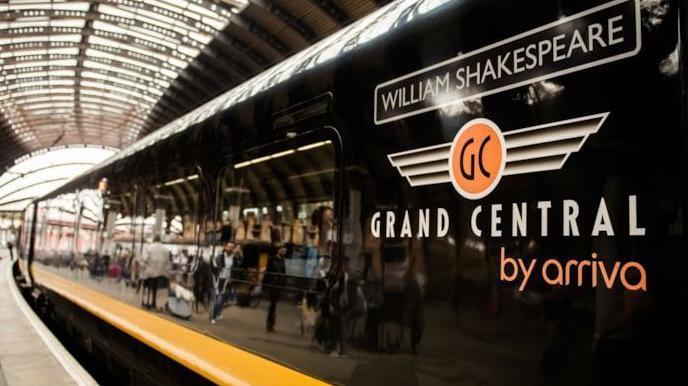Guildford railway station celebrates 180 years

Celebratory events will be run by volunteers including former Guildford railway workers
- Published
Events to mark the 180th anniversary of railway's arrival in Guildford are taking place across the bank holiday weekend.
A free exhibition including vintage film and steam train sound recordings will tell the story of Guildford's railway history and heritage.
The station was first opened on 5 May, 1845.
A new display timelining the history of the local railway and 10 blue designs commemorating the historical impact of women on the North Downs line were unveiled on Friday.

Retired railwayman and historian Geoff Burch and local historian David Rose have selected images to show the railway's development since 1845
Events, running from Friday until Sunday, are being led by volunteers including former Guildford railway workers.
Friends of Guildford Railway Station, which is organising the events with Southeast Communities Rail Partnership, say visitors can access the controller from a vintage 4-Sub electric train.
'Rail changed lives'
Women celebrated in the display include Elsie Winterton, who lived in Reading and became the first female member of the UK's Institution of Railway Signal Engineers in 1923, and Dame Flora Shaw, an overseas correspondent who lived in the village of Gomshall and used the trains every day.
Others range from a line crossing keeper, a suffragette, station typists and a Dorking stationmaster who stepped into the role while men went to war.
Sara Grisewood, from Southeast Communities Rail Partnership, said the celebrations highlighted "people who really made a difference in the past".
"It shows how the railways have changed people's lives," she told BBC South East.

Sara Grisewood says it is difficult to trace the histories of women on the rails because "they weren't allowed to be recorded"
A significant moment in Guildford station's 180-year history was the arrival of electric trains in 1925.
"It changed how people travel, how people worked, especially somewhere like Guildford," Sara Grisewood said.
She said the railway was particularly important for the Rodboro Buildings in the town centre, believed to be one of the first purpose-built car factories in England and the world.
"The factory would not have been able to expand and grow without the railways bringing people to work," she said.
Follow BBC Surrey on Facebook, external, on X, external, and on Instagram, external. Send your story ideas to southeasttoday@bbc.co.uk, external or WhatsApp us on 08081 002250.
Related topics
- Published27 April

- Published25 April

- Published16 February
